Everybody wants links from high DR websites. But the owners of these sites are very protective of their reputation and critical of who they link out to.
So, building links from them is pretty difficult.
In this article, we’ll discuss how to get backlinks from high DR sites and 7 strategies to help you land more, juicer links.
Let’s get into it.
Link building cheat sheet
What is Ahrefs Domain Rating (DR)?
Domain Rating (DR) is a third-party metric created by Ahrefs. It’s designed to give you an idea of a website’s relative backlink strength.
There are also other versions of this metric, like Domain Authority (DA) by Moz.
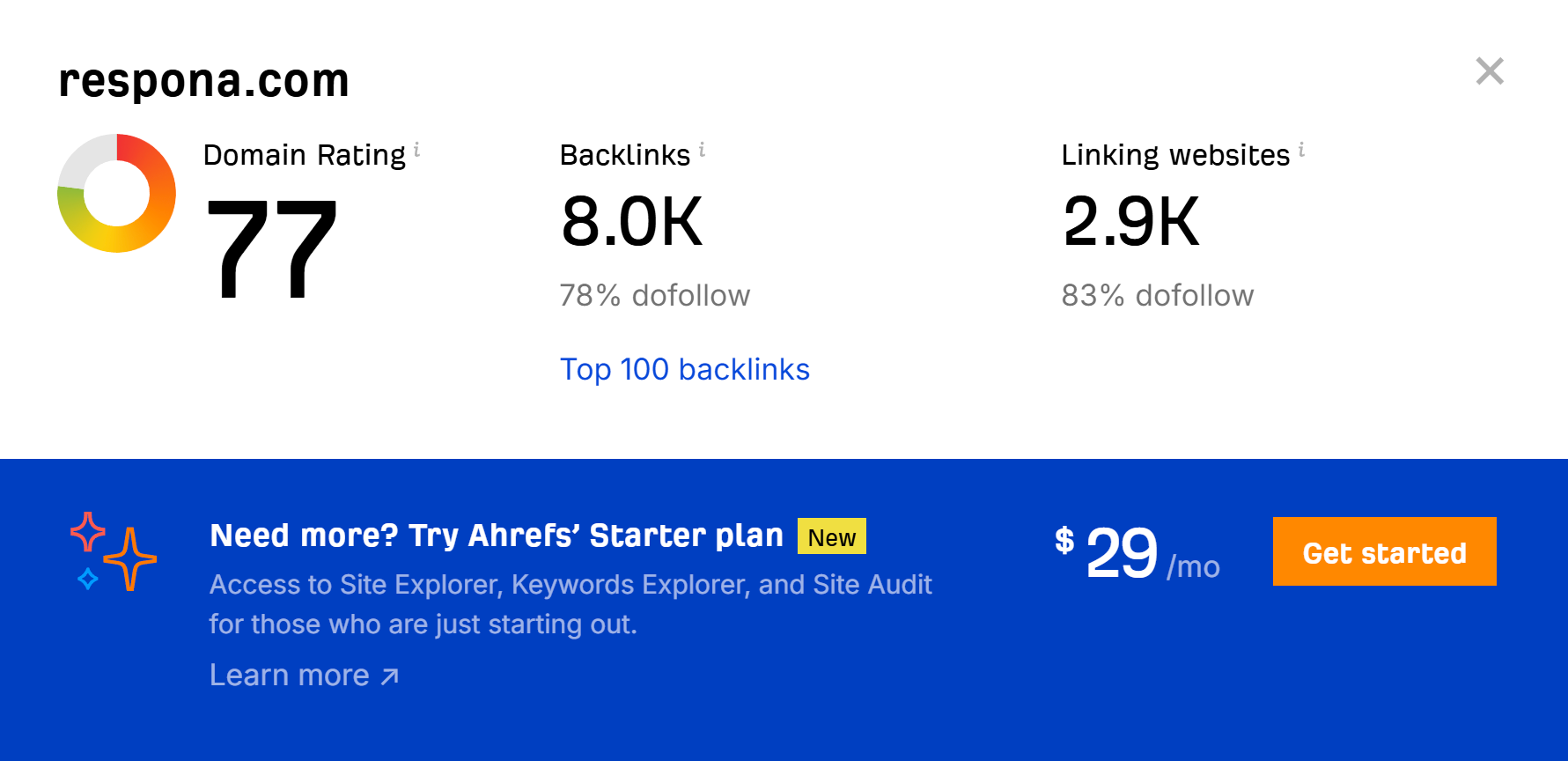
Essentially, it is based on the strength of a site’s backlink profile and puts it into an easily quantifiable number.
The higher the DR, the stronger a site’s backlink profile is considered to be.
Does DR Actually Matter?
It’s important to understand that DR and DA are third-party metrics, so they’re not an official Google search engine ranking factor.
However, both DR and DA attempt to emulate the concept of PageRank, which is also reliant on the strength of a site’s backlink profile.
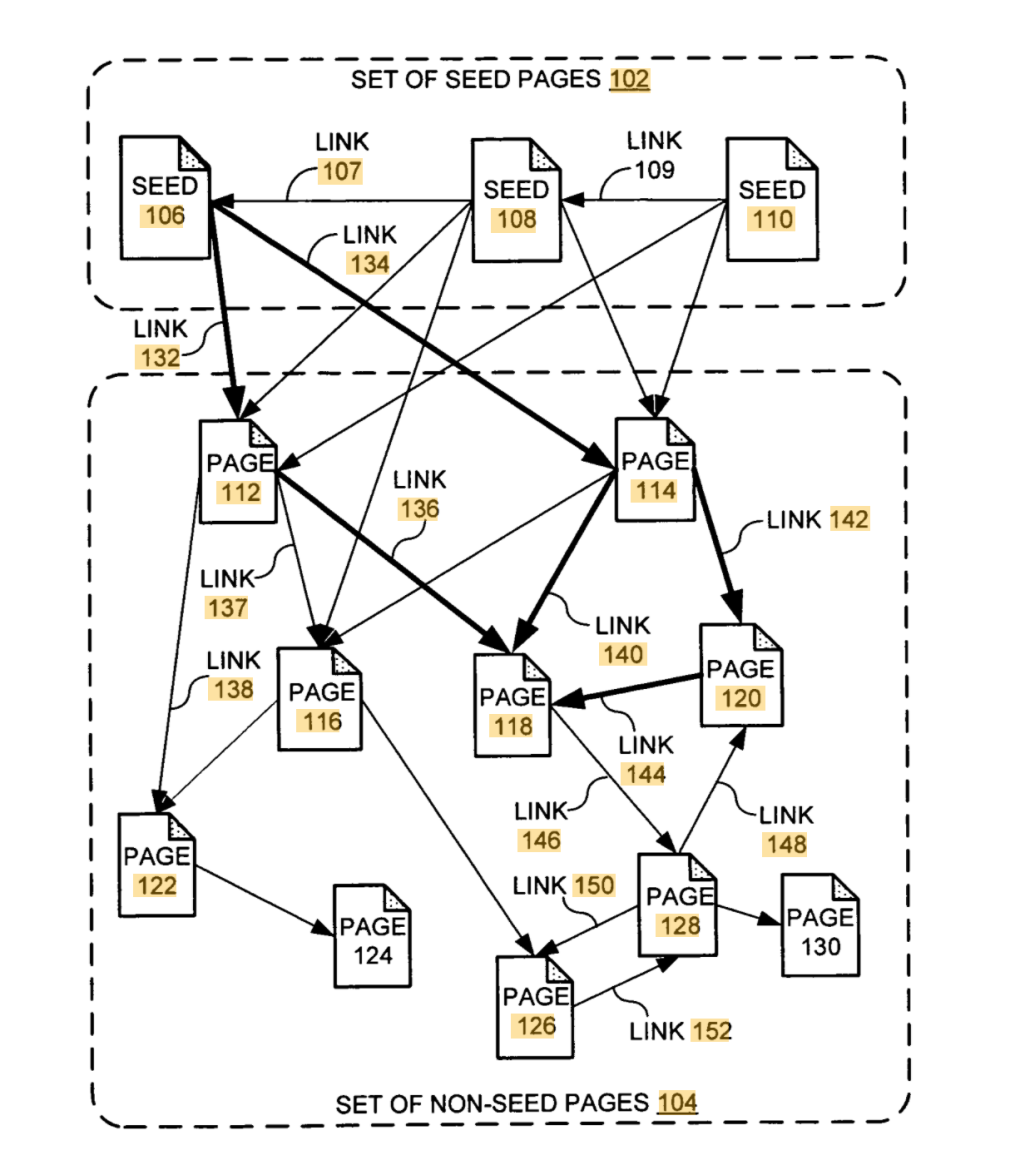
So, a higher DR is typically associated with better performance on search engines results pages.
Websites with valuable backlink profiles tend to rank higher for relevant keywords.
While DR is commonly used by marketers to find valuable backlink building opportunities, it’s not the only metric you should rely on.
It’s important to look at a site’s (and the referring page’s) traffic as well.

While outbound links from zero-traffic pages still pass link juice, obviously you also want real people coming through them.
A high DR site with low traffic might not be as valuable as a slightly lower DR site with a more engaged audience.
Are High Authority Backlinks Hard to Get?
It’s better to focus on the 50-70 DR range rather than higher.
DR 80+ links are super hard to get links from and a cold email usually won’t be enough.
You’ll need to do some networking or come up with a special arrangement that benefits them besides a simple ABC link exchange.
For example, this placement for Respona on Backlinko’s blog took month of negotiation and quite a few extra tasks to land:
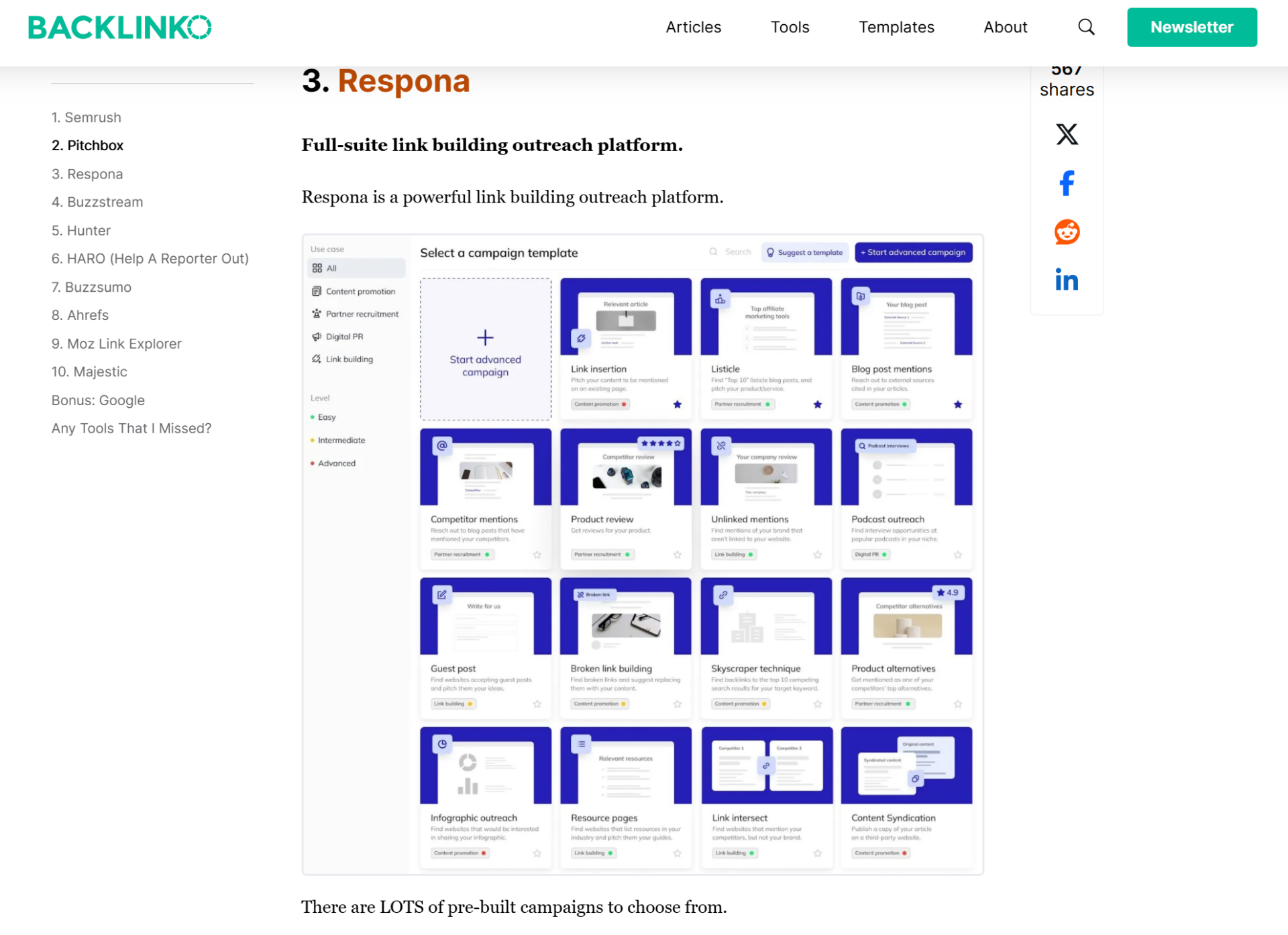
Needless to say, it has paid off in the long run – but this was exponentially more difficult to set up than a link exchange with a lower-DR site.
If you’re aiming for 70+, it’s going to be hard to convince the potential referring domain to collaborate unless you have a high quality link of similar strength to return the favor.
An ideal situation would be if you’re writing a guest post for a similar strength site to set up an ABC and return the favor for your link prospect non-reciprocally.
Also they get thousands of these pitches on a weekly basis so yours MUST stand out.
How to Find Relevant High DR Sites
Finding the right high DR sites for link building takes a bit of strategizing and patience.
It’s not about simply chasing any site with a high DR; it’s about finding those that are both authoritative and relevant to your niche.
You can start by using advanced Google search operators to find opportunities that have already mentioned your target keywords within their high quality content, but aren’t direct competitors.
This is also known as a link insertion – one of the most effective and targeted link building strategies.
Let’s say your target keyword phrase is “remote team collaboration tools.” To find relevant sites, you can use a specific Google search string like this:
inurl:blog intext:”remote team collaboration tools” -intitle:”remote team” -intitle:”collaboration” -intitle:”tools”
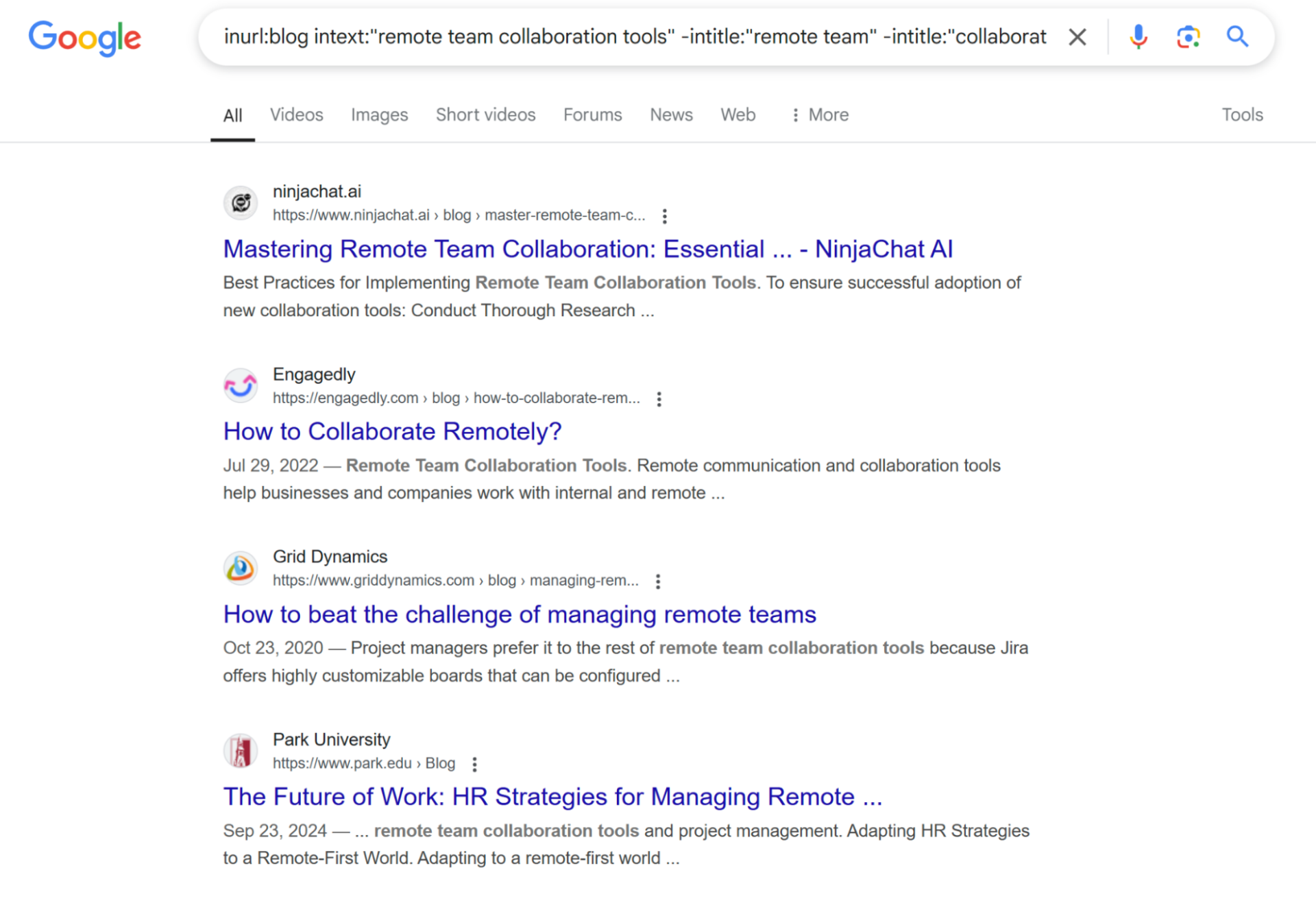
Here’s a breakdown of what each part of this search string does:
- inurl:blog: narrows your search results to show only pages that are part of a blog.
- intext:”remote team collaboration tools”: ensures that the exact phrase “remote team collaboration tools” appears within the body of the content on the pages you find.
- -intitle:”remote team” -intitle:”collaboration” -intitle:”tools”: excludes pages with “remote team,” “collaboration,” or “tools” in the title, filtering out pages that might be too closely related or competitive.
Once you’ve identified potential sites using these search operators, the next step is to evaluate their DR or DA with Ahrefs or Moz.
Needless to say, doing this one-by-one can take hours.
You have to experiment with your search queries, sift through results, and then check the DR of each individual site.
Fortunately, tools like Respona can completely automate this process.
Respona offers a built-in search engine that can run multiple searches simultaneously.
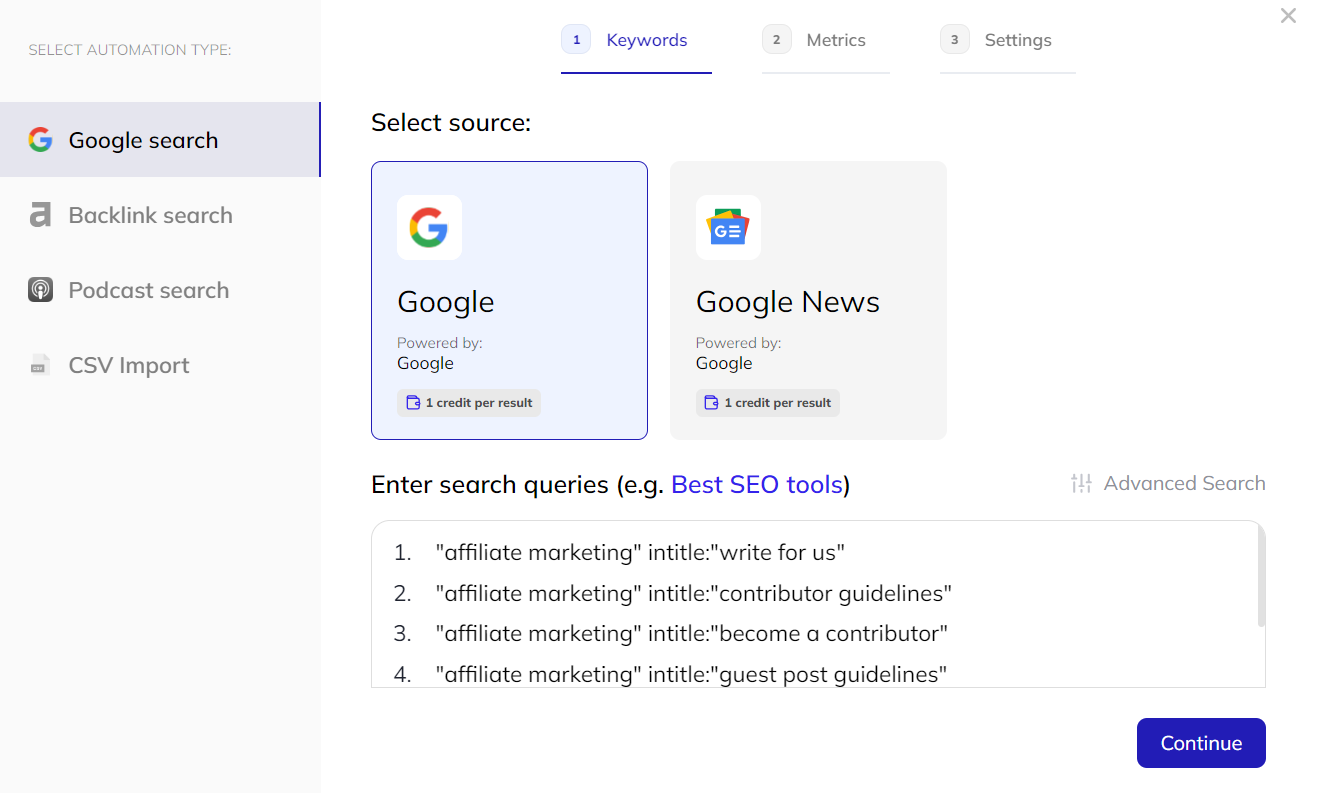
It also has built-in SEO filters that help you narrow down the results to only high DR opportunities, significantly streamlining your link building efforts.
Reach Out to the Right Team Member
When you’re dealing with smaller websites, you can often get away with a slightly less targeted approach.
Even if you reach out to the wrong person, your message will likely find its way to the right ears because of shared responsibilities and tighter communication in general.
But high DR sites are a different ball game.
We’re talking about organizations with potentially hundreds of employees. Sending your link pitch to a generic inbox is a guarantee that it’ll get lost never to be seen.
To actually get noticed, you need to identify and contact the content or SEO manager, or whoever is directly responsible for their link strategy.
They’re the ones who will truly understand the value of your pitch.
If you’re handling link building manually, you might try checking the website’s contact page or searching on LinkedIn.

However, with larger sites, finding the right person’s direct email can be a real challenge – and it’s almost never listed openly.
For a small campaign (with only a few opportunities), a free email finder might suffice.
They typically have daily search limits, so you might cycle through a few different finders.
But for a more substantial link building campaign, you’ll need to invest in a bulk email finder. Otherwise you won’t find your target contacts within any reasonable amount of time.
Respona fully automates the process of finding the right contacts at scale, saving you a significant amount of time and effort.
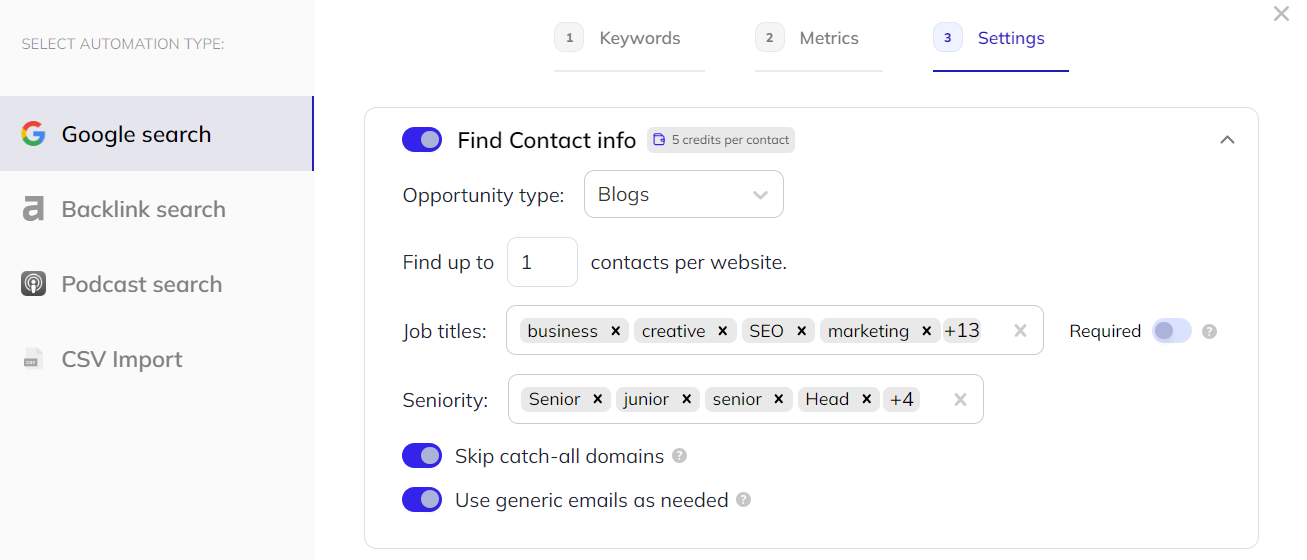
Of course, it’s fully customizable and can find you several contacts per website to increase your chances of getting a reply.
It ensures your pitches reach the people who can actually take action.
Come Up with a Unique Template
When it comes to link building emails, especially when targeting high authority websites, your value proposition is the most important part.
These sites get bombarded with generic requests, so you need to stand out.
The trick is to show them you’re not just another email blast, but someone who knows what they’re talking about.
For example, if you’re pitching a guest post, don’t just offer to write “something.”
Instead, offer real, tangible value.
A strong pitch would be to offer them to do keyword research, or even better, to show them you’ve already done the research and identified a keyword gap.
Provide Real Value
Here’s how you can do it it:
Use an SEO tool like Semrush or Ahrefs to analyze your prospect’s website and their competitors.
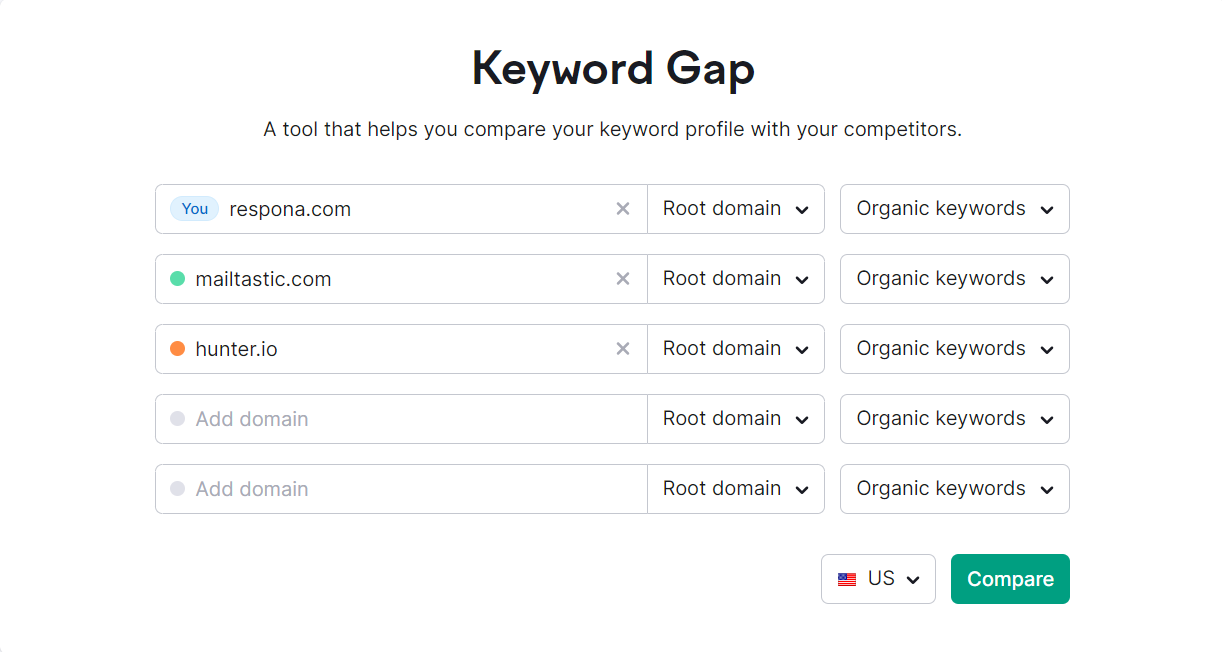
Use the “Keyword Gap” tool to find keywords that their competitors are ranking for, but they’re missing.
The handy thing about this tool is that it allows you to stack up several competitors versus your prospect.
Hit “Compare” and sift through their missing keywords.
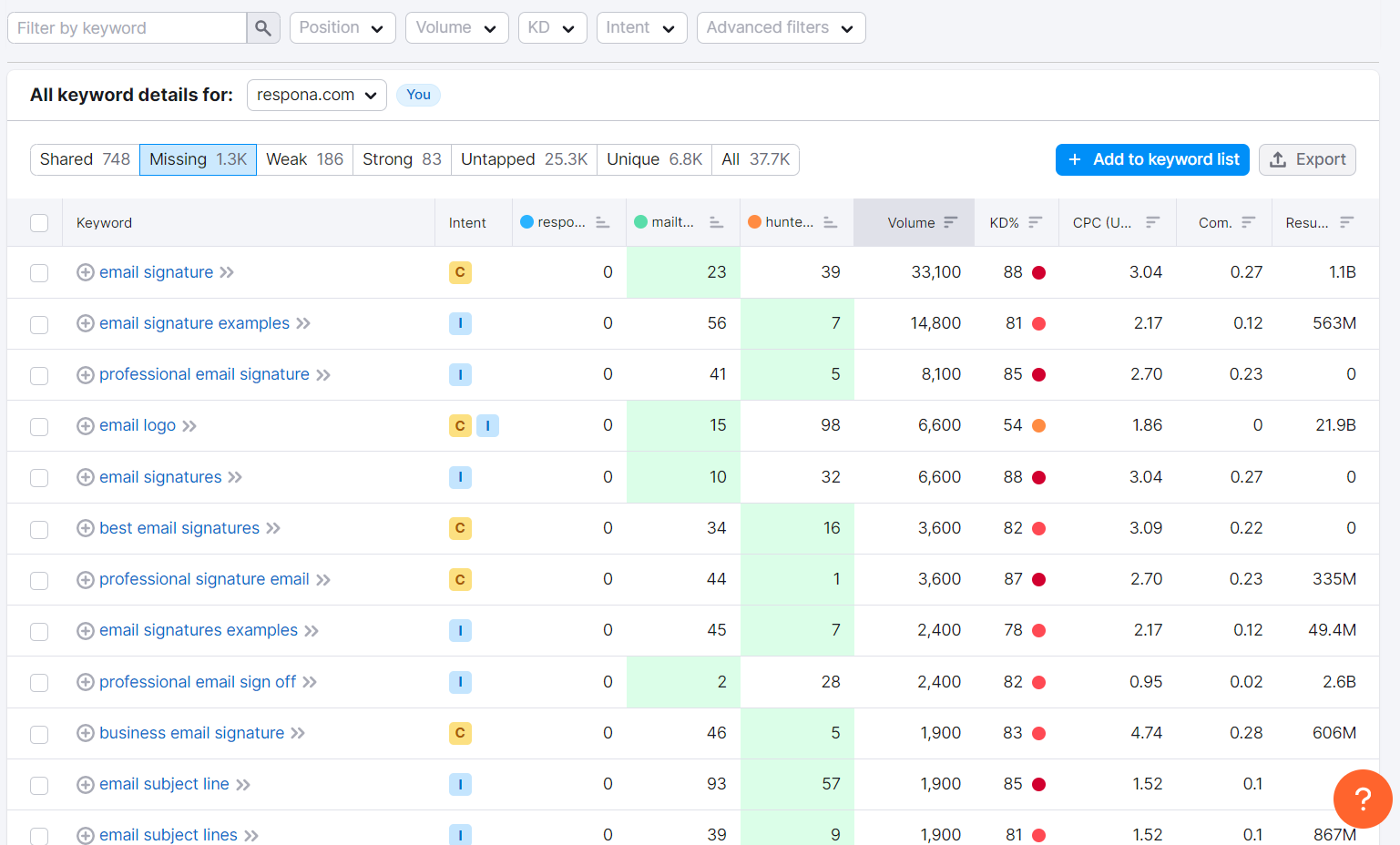
Once you’ve identified these gaps, brainstorm article ideas that would help them fill those valuable content holes.
Try to go for low-difficulty, high-volume keywords – since these are easier to rank for. Trust me, your prospect will appreciate the effort.
This demonstrates that you’re not just throwing out random ideas, but offering strategic, data-driven suggestions.
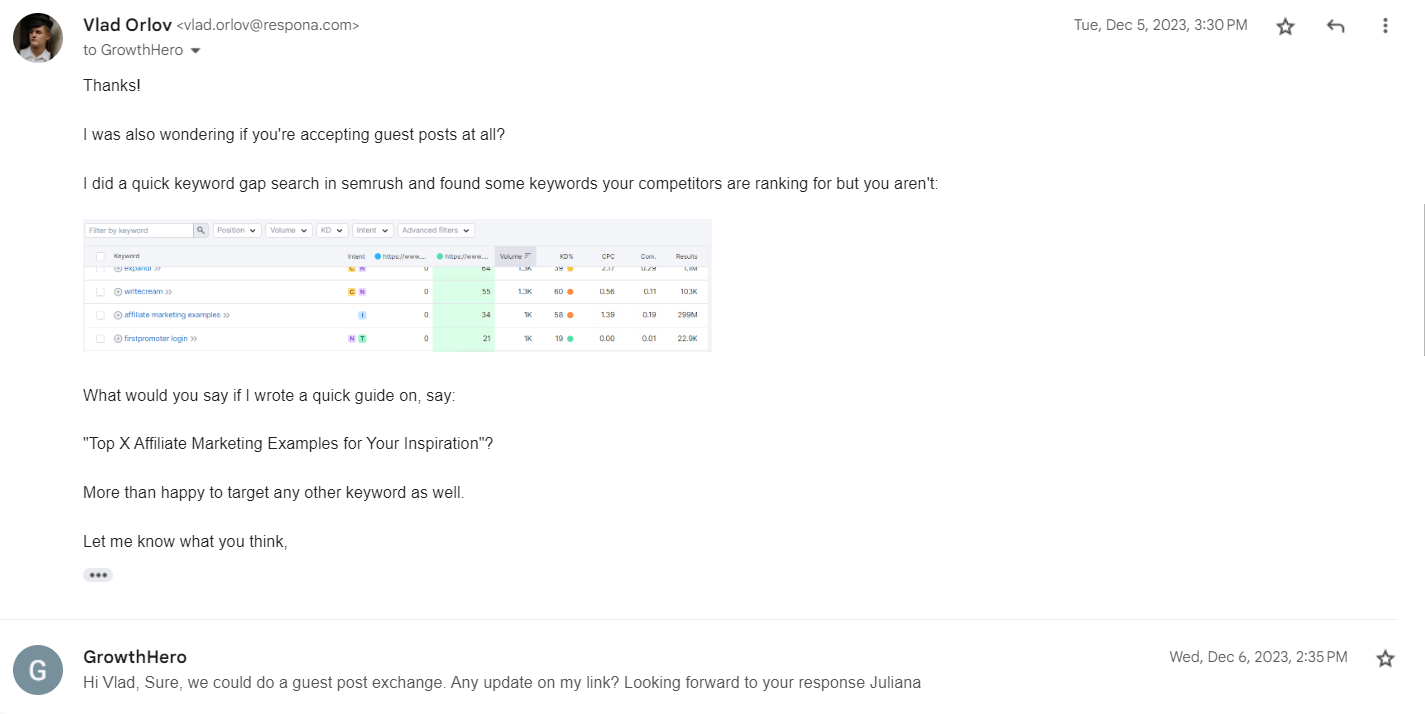
In your pitch, include a screenshot of the missing keywords as proof that you’ve done your homework.
This visual evidence adds credibility and shows that you’ve invested time and effort into understanding their needs.
It works better for warm emails (not the first one in the thread), but can be done with cold outreach too.
Here’s a template that’s worked well for us:
Subject: your keyword gap results
Hi, {first_name}!
Hope you’re doing great!
I was playing around in Semrush and noticed that your competitors [list 2 competitors] are ranking for [keyword] but you aren’t.
I actually happen to have a writer in house who is a [keyword] nerd and would love to write a high-quality piece of content covering that topic for you.
Let me know if you’re interested?
[sign-off]
This approach works because it’s personalized, shows you’ve done your research, and offers a clear, valuable solution.
It’s not just about getting a link; it’s about providing genuine value to the site owner.
Reach Out at Around 12PM
When it comes to sending your link building emails, timing can play a role in whether or not they get opened and acted upon.
Of course, you don’t want to send out on a Saturday, but other than that the entire week shares just about the same open rate.
But what about the exact best time to send an email?
There’s a lot of conflicting data out there on the “best” time to send emails, so it’s important to understand the nuances.
For example, Hubspot reports that 11 AM is optimal, while others point to different times, like early morning, mid-afternoon, or even late at night.
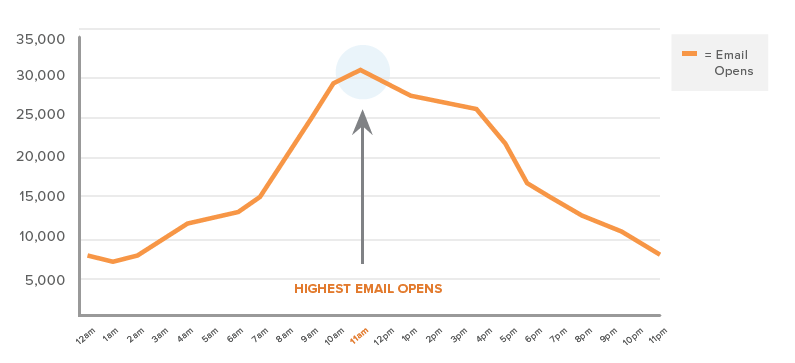
Siege Media’s study specifically focused on email outreach (excluding newsletters) and found that the best times to send were either 8-9 AM or 1 PM.
Coincidentally, these times align with the start of the workday and the return from lunch breaks, when people are more likely to check their inboxes.
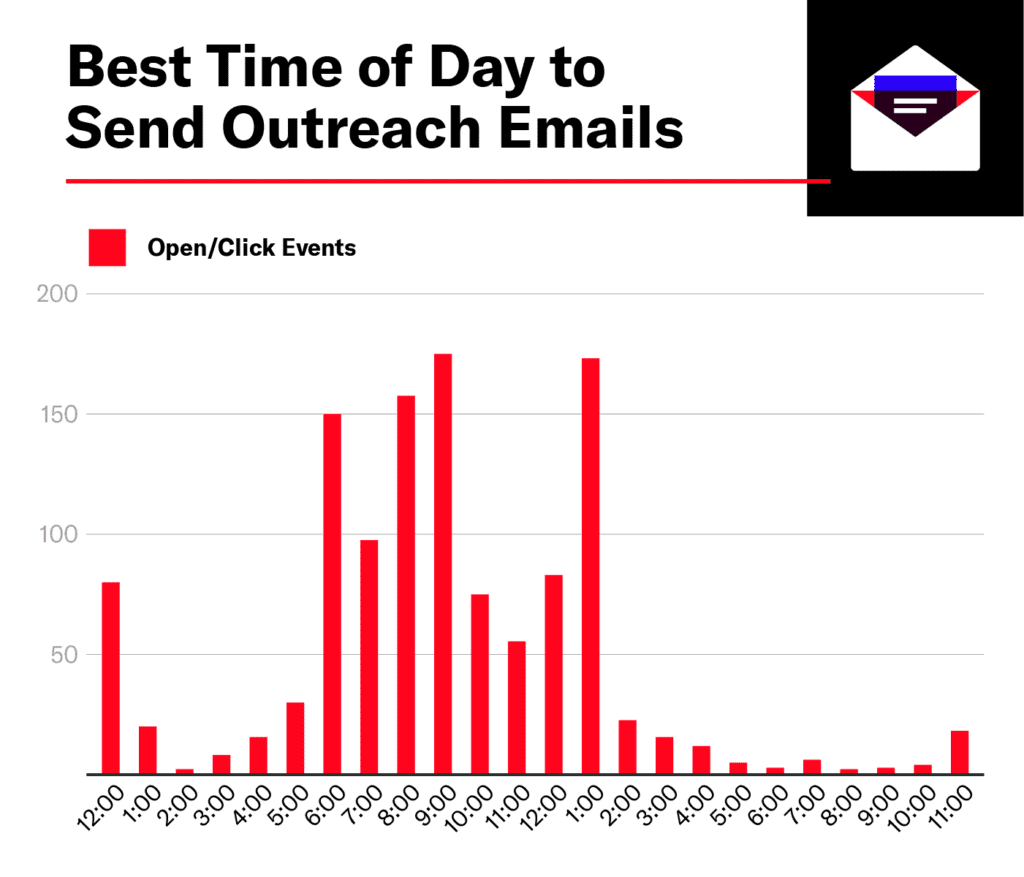
We agree – in our experience, some time before lunch break works great for building backlinks. Too early in the morning and people are busy starting their day.
Too close to the end of their shift, and they’re wrapping up their daily/weekly tasks.
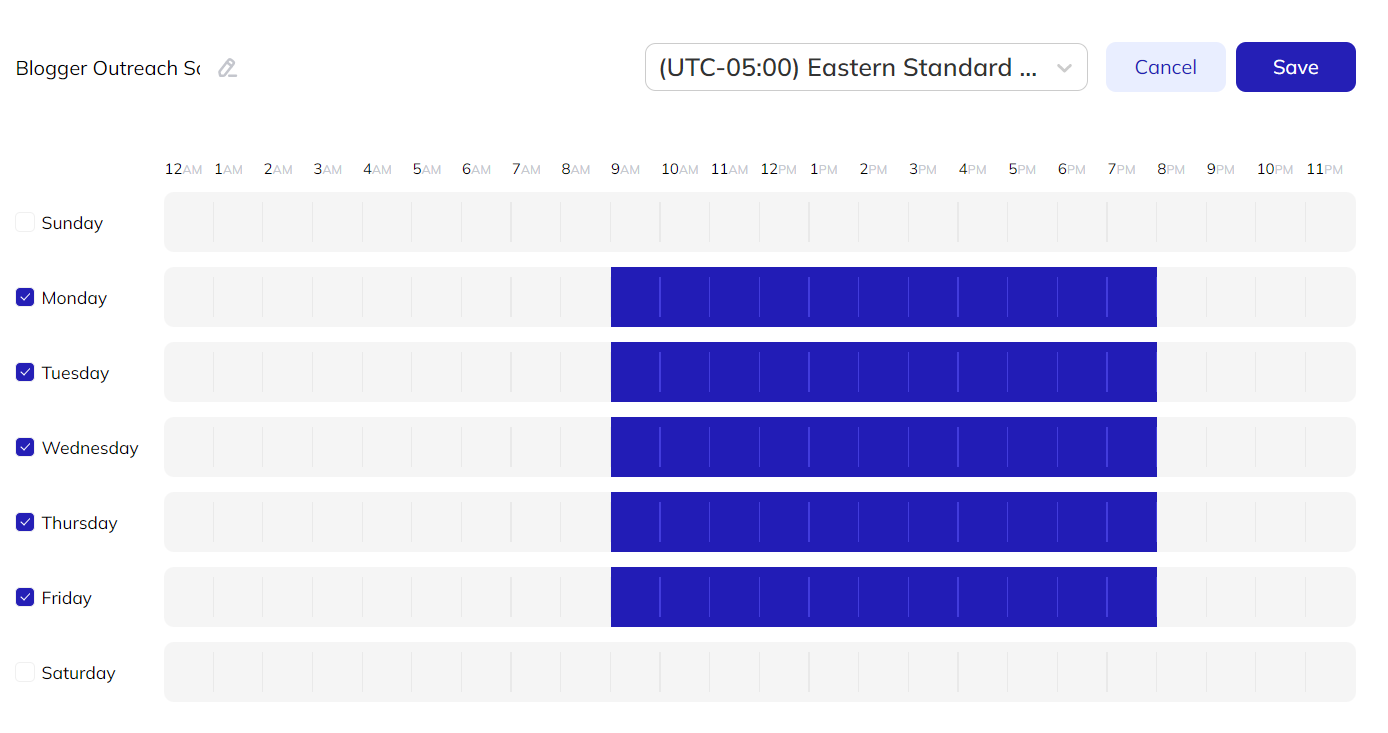
With Respona, you can create custom schedules to always send your emails at the right time.
Follow Up Respectfully
Don’t be the person who sends a follow-up email every single day.
That’s annoying, rude, and a surefire way to get your email marked as spam.
And, of course, common sense dictates you shouldn’t be following up over the weekend. Let people enjoy their downtime.
Yes, we have been the targets of these kinds of follow-ups. How could you tell?
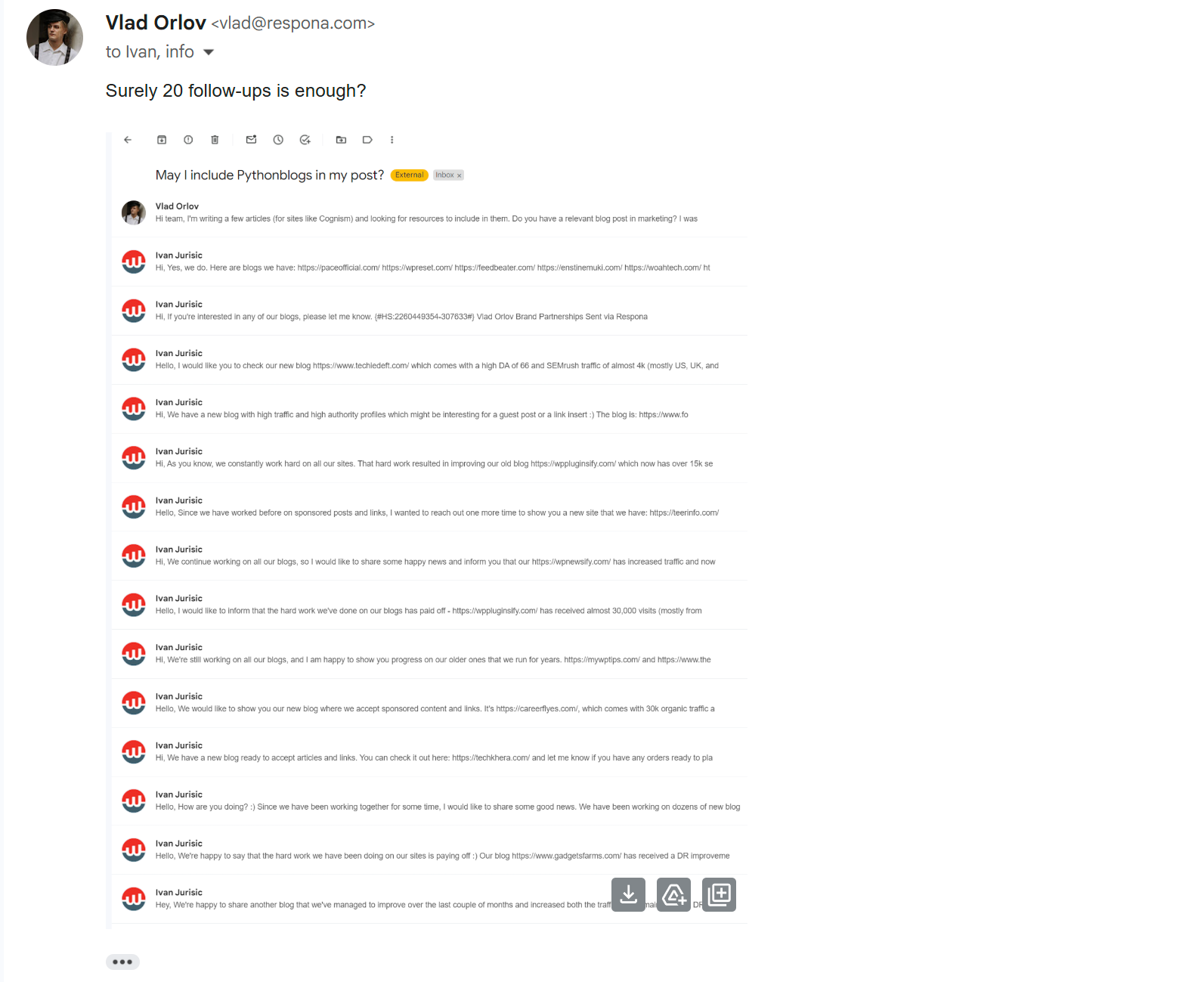
Yes, we did send the first email in the thread, but the response was an automated “please pay us money” so we didn’t respond further. That didn’t stop them from following up literally 20 times.
Anyway, an effective follow-up is respectful – with at least 3-5 business days between each.
Normally, we’d tell you 1 or 2 follow-ups is enough, but collaborating with a high DR website can stretch over months, especially if you’re working on a listicle inclusion.
So you might have to follow up quite a few more times – even if they have already replied.
Create a respectful sense of urgency
Tasks at big companies get lost in transit all the time – especially if they involve helping out other people.
Now, it’s important to avoid being passive-aggressive.
Nobody responds well to guilt trips or demands.
Instead, try to respectfully create a sense of urgency, but don’t overdo it.
For instance, if you’re offering an ABC link exchange with a link from your guest post as an incentive, you could say something like:
“Hey, just wanted to gently nudge this back to the top of your inbox. I’m submitting the guest post tomorrow, so just wanted to see if you were still interested in being included.”
This lets them know there’s a deadline without being pushy.
Respona automates your follow-ups, allowing you to set custom delays and ensure you’re following up at the right time and in the right way.
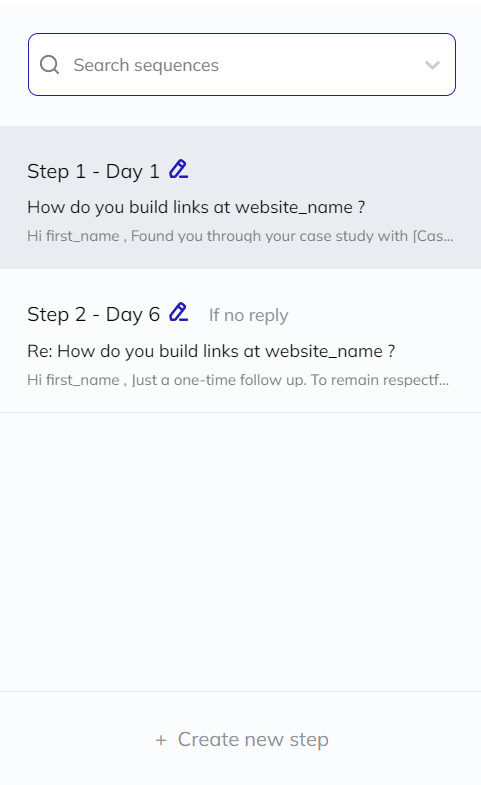
No more manually tracking dates or worrying about sending too many emails. It’s all handled for you, so you can focus on building those valuable connections.
Go the Extra Mile
One solid inbound link from a high DR website that actually gets real, targeted traffic can be worth a hundred links from lower quality sites.
Especially if it’s a prominent mention, like that Backlinko listicle placement we talked about earlier.
Those kinds of organic backlinks aren’t just about SEO; they’re about driving relevant traffic (warm leads!) and building your brand’s authority.
So, don’t be afraid to put in the extra effort. These high quality links are worth chasing, even if it takes months of persistent, respectful blogger outreach.
You may also have to do some extra tasks, like helping out with the content.
Think of it as an investment in your long-term SEO strategy.
But don’t just stop at one link. Aim for a long-term collaboration. You want to be friends with high DR sites. It means money.
Explore opportunities for joint webinars, podcast appearances, or even writing guest posts for each other’s blogs (if it makes sense for both your audiences).
Automate with Respona
Now, effective link building outreach is both a numbers game and a precision game.
Respona combines both and comes with 15 pre-built link building campaign templates for different techniques.
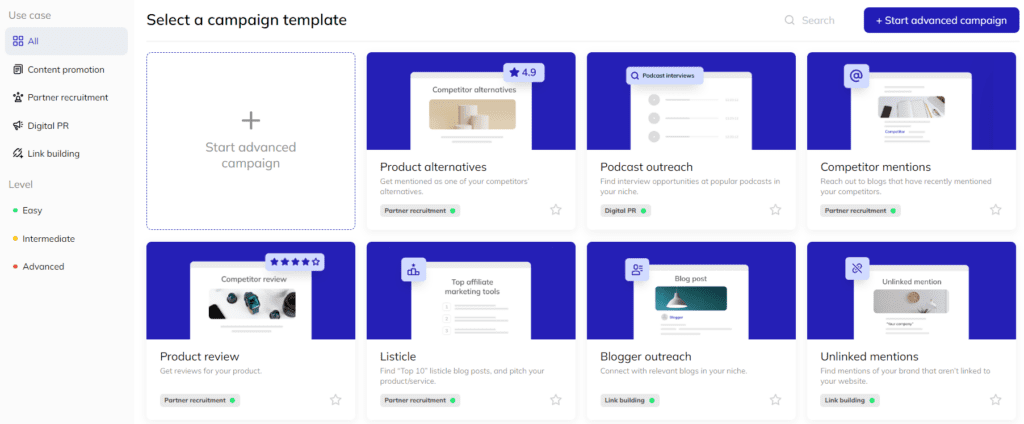
It streamlines every step of link building, from prospecting to personalization, without sacrificing quality.
The platform automates tedious tasks like finding contact information and scheduling follow-ups, while also providing tools to help you craft compelling and personalized pitches.
This allows you to scale your outreach efforts effectively while maintaining a high level of personalization, which is crucial for securing those valuable high DR links.
Link building cheat sheet
Now Over to You
So, it takes quite a bit of effort to get even a single high quality backlink from a high authority site.
But it’s not impossible – and the SEO and lead generation benefits more than outweigh the time spent on them.
Need help getting quality backlinks from high DR sites?
Don’t hesitate to start your 14-day free trial with Respona to see it in action.
Frequently Asked Questions (FAQ)
Is it worth pursuing links from extremely high DR sites (80+)?
While these links are highly valuable, they’re incredibly difficult to obtain.
Be ready to go the extra mile, but high authority links like these will be few and far between.
Sites in the 50-70 DR range are much easier to secure placements on consistently. Broken link building is one of the easiest ways to get your foot in the door with a high authority site – but you have to be vigilant, they take care of their website’s health so they’re quickly eliminated.
How important is relevance when targeting high DR sites?
Relevance is everything.
A link from a highly relevant, high DR site will drive more targeted traffic and have a greater impact on your SEO than a link from a less relevant, equally high DR site.
What’s the best way to find the right contact person at a high DR site?
Use LinkedIn or specialized email finder tools to identify the content or SEO manager.
Reaching out to the right person significantly increases your chances of getting a response.
How often should I follow up when trying to get a link from a high DR site?
Space your follow-ups by 3-5 business days and avoid weekends.
Be respectful and create a sense of urgency without being pushy or annoying.
Can automation tools really help with securing high quality backlinks?
Yes, tools like Respona can automate prospecting, contact finding, and follow-ups, allowing you to scale your outreach while maintaining personalization.
They streamline the process, making it more efficient and effective.





